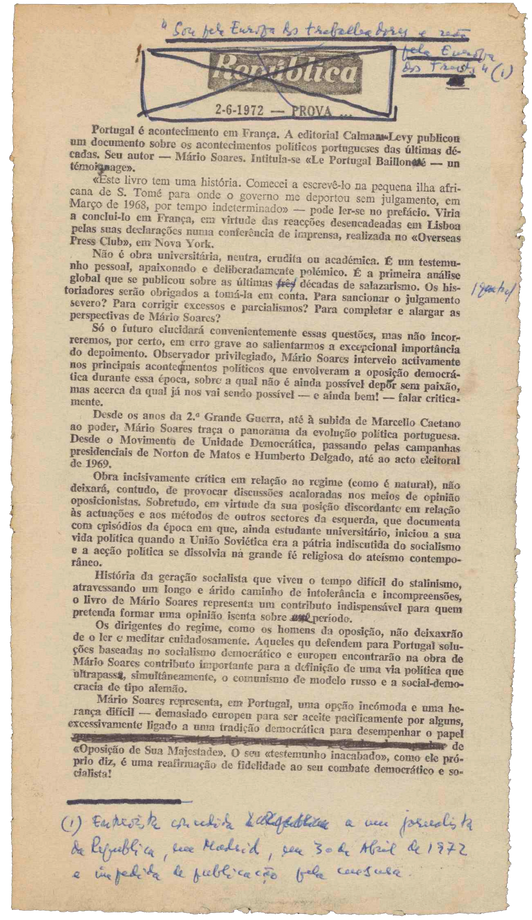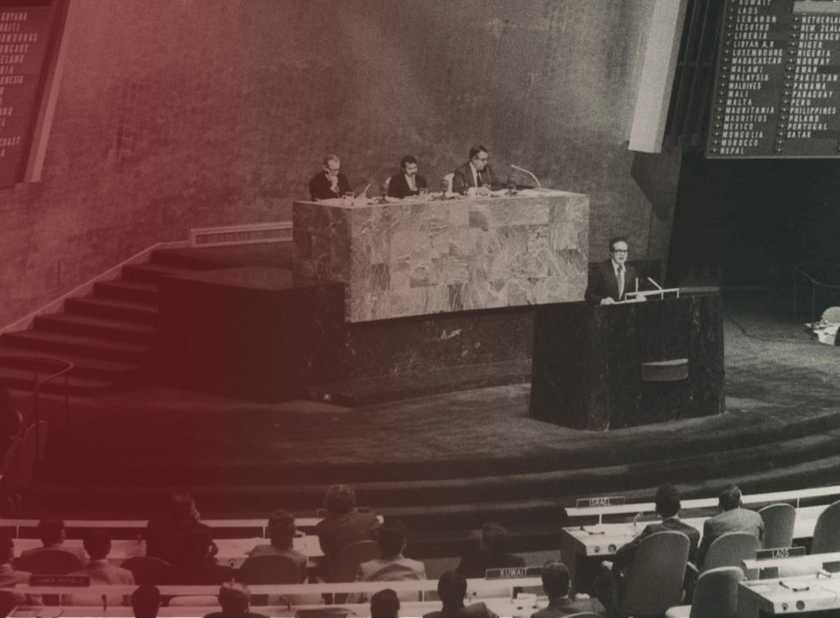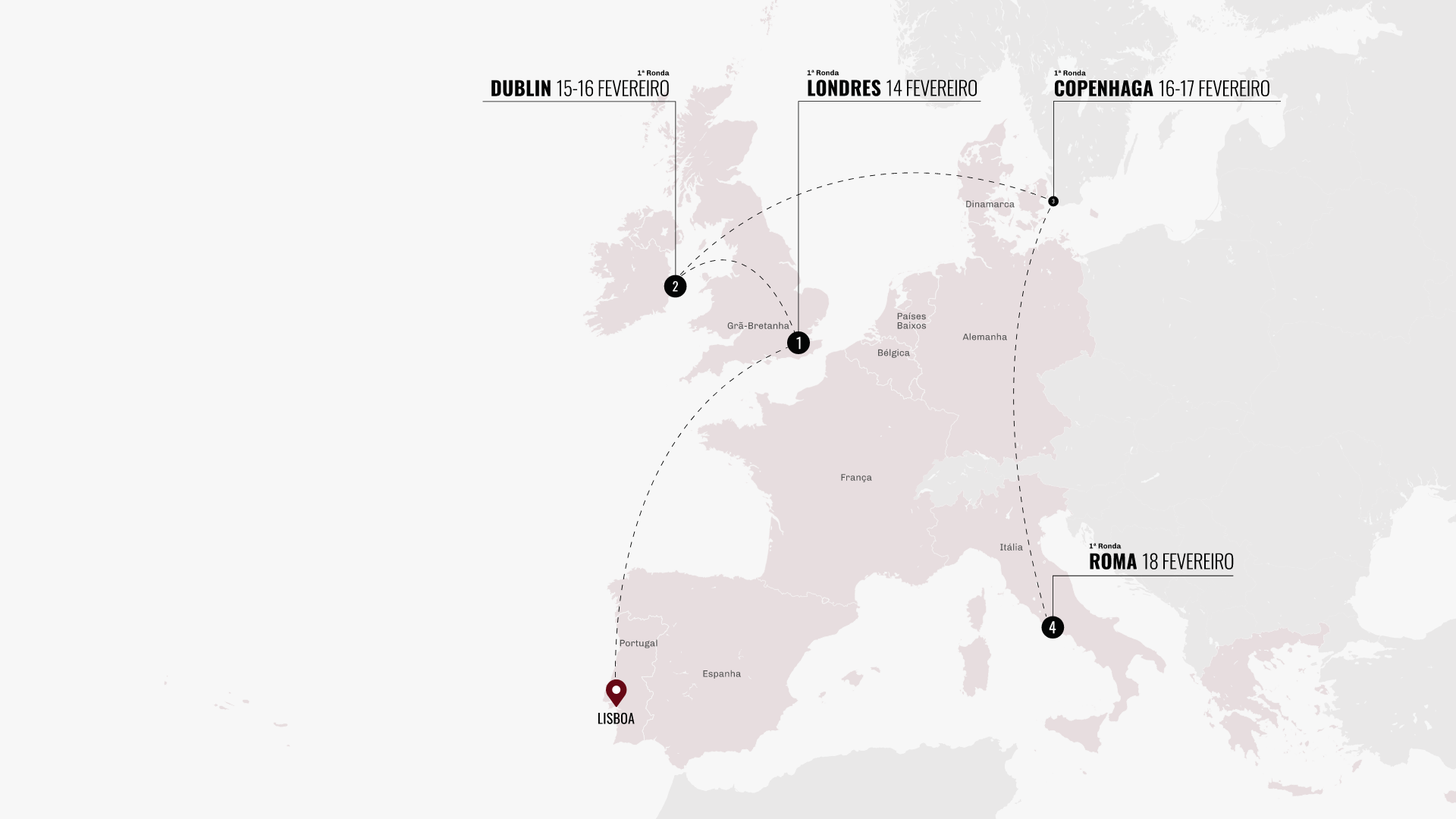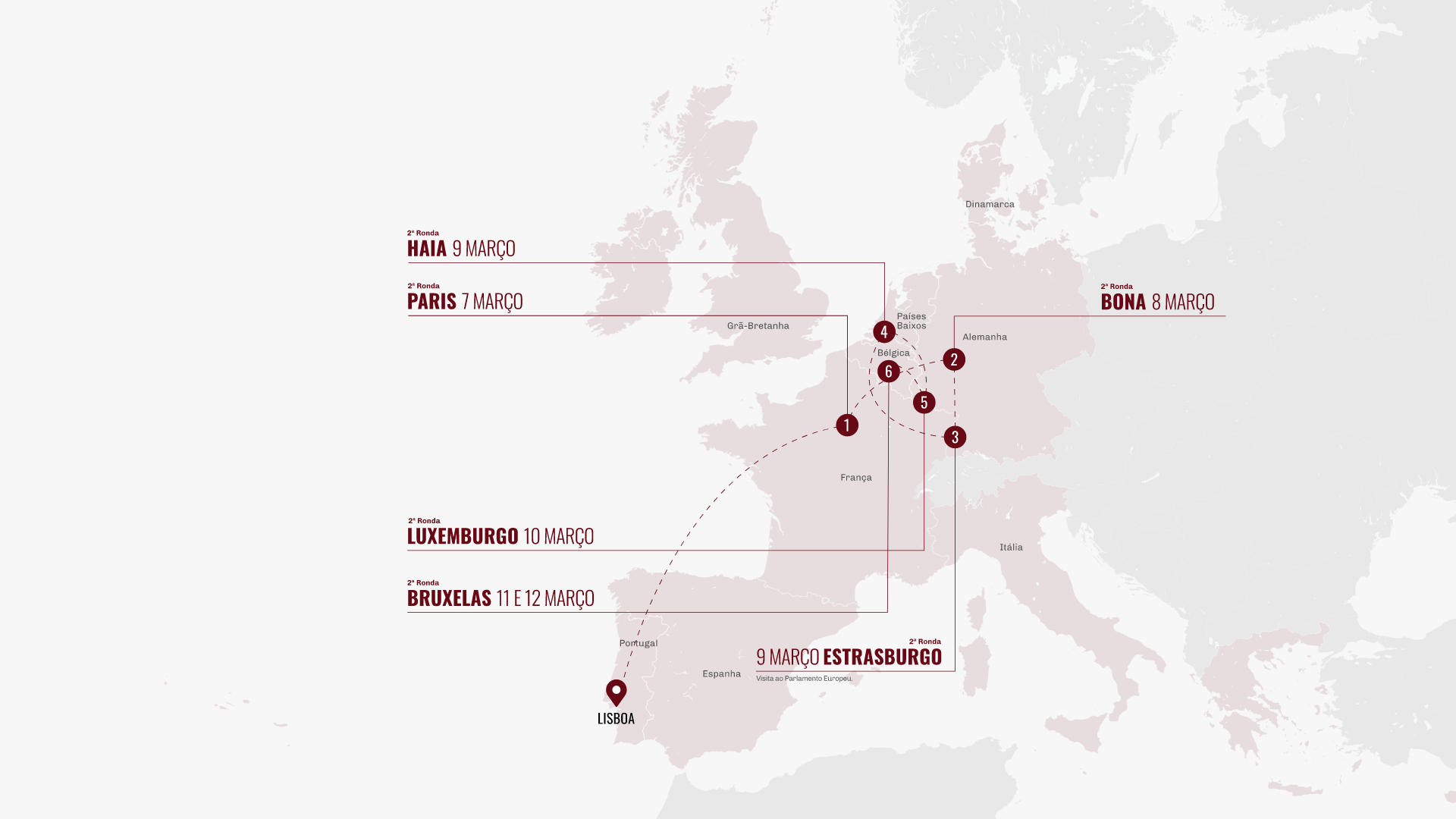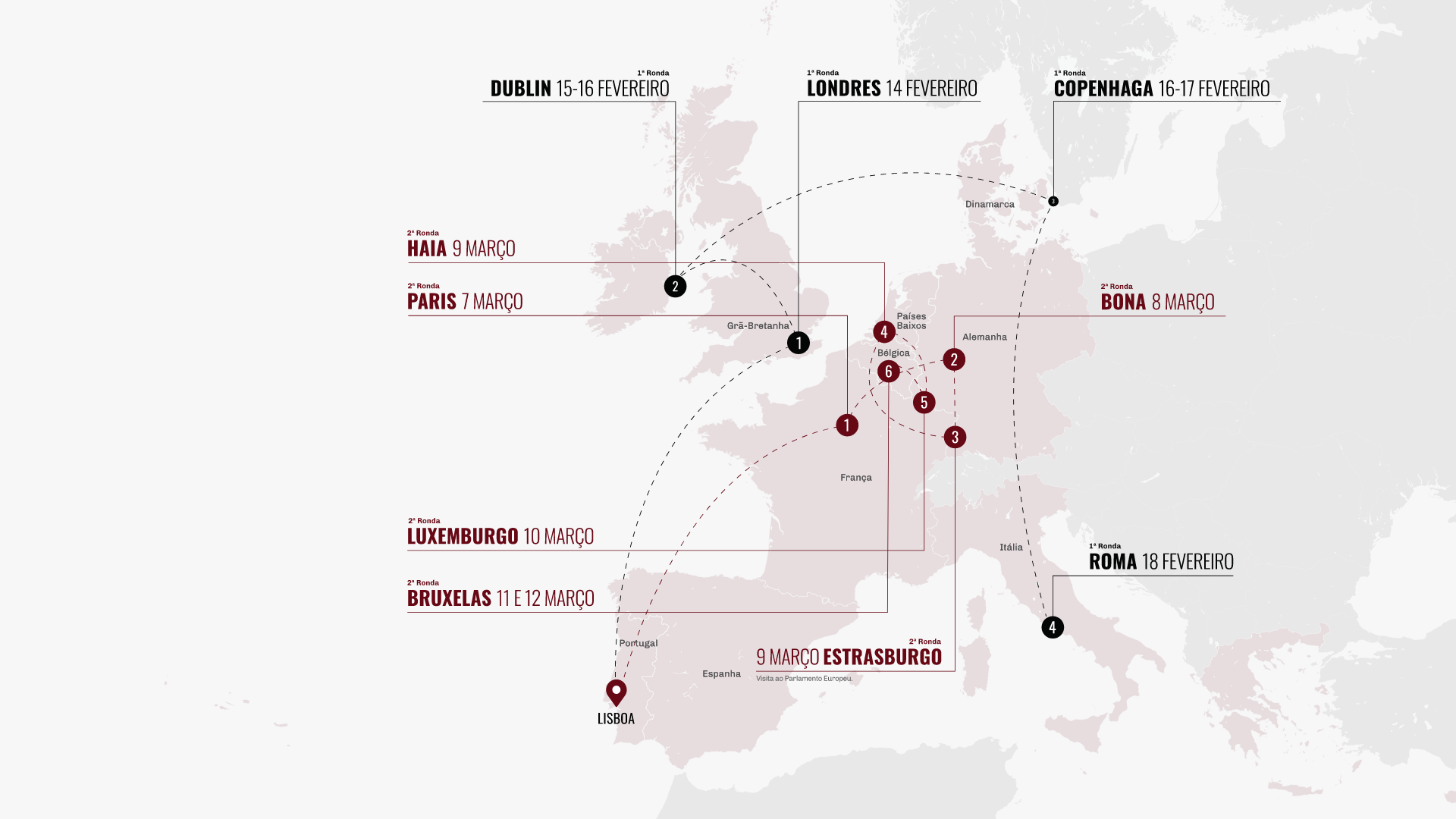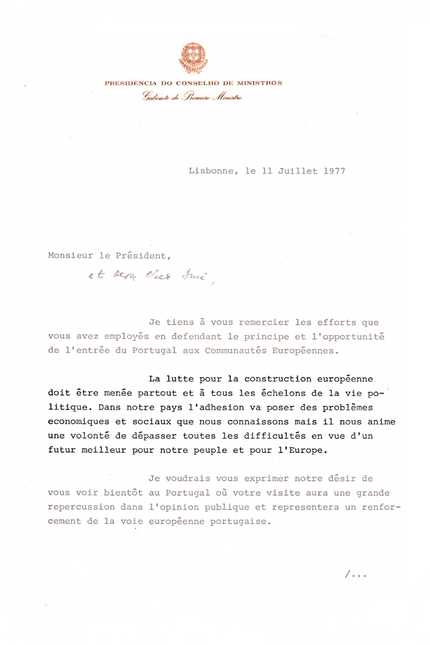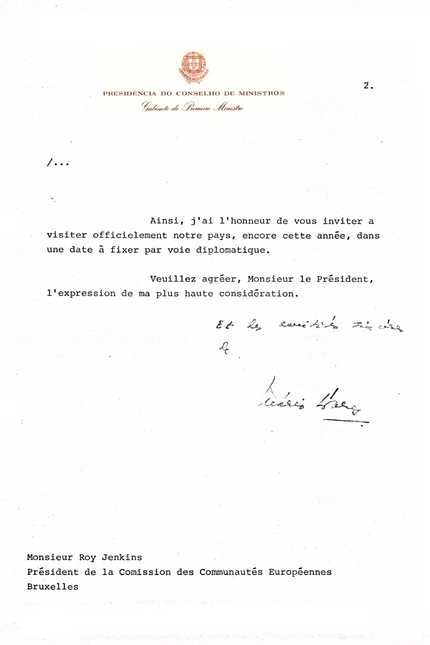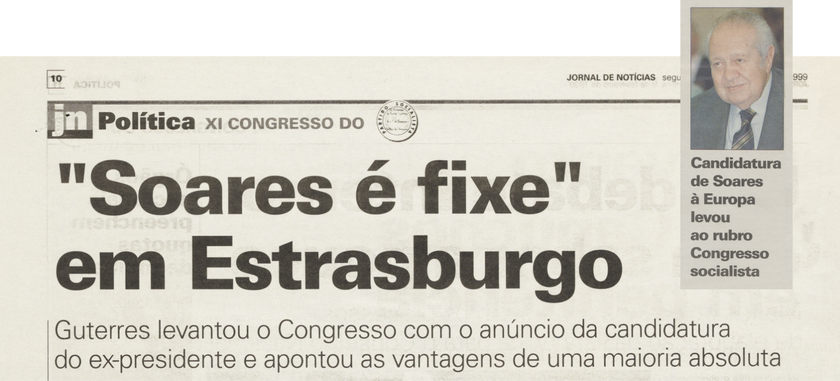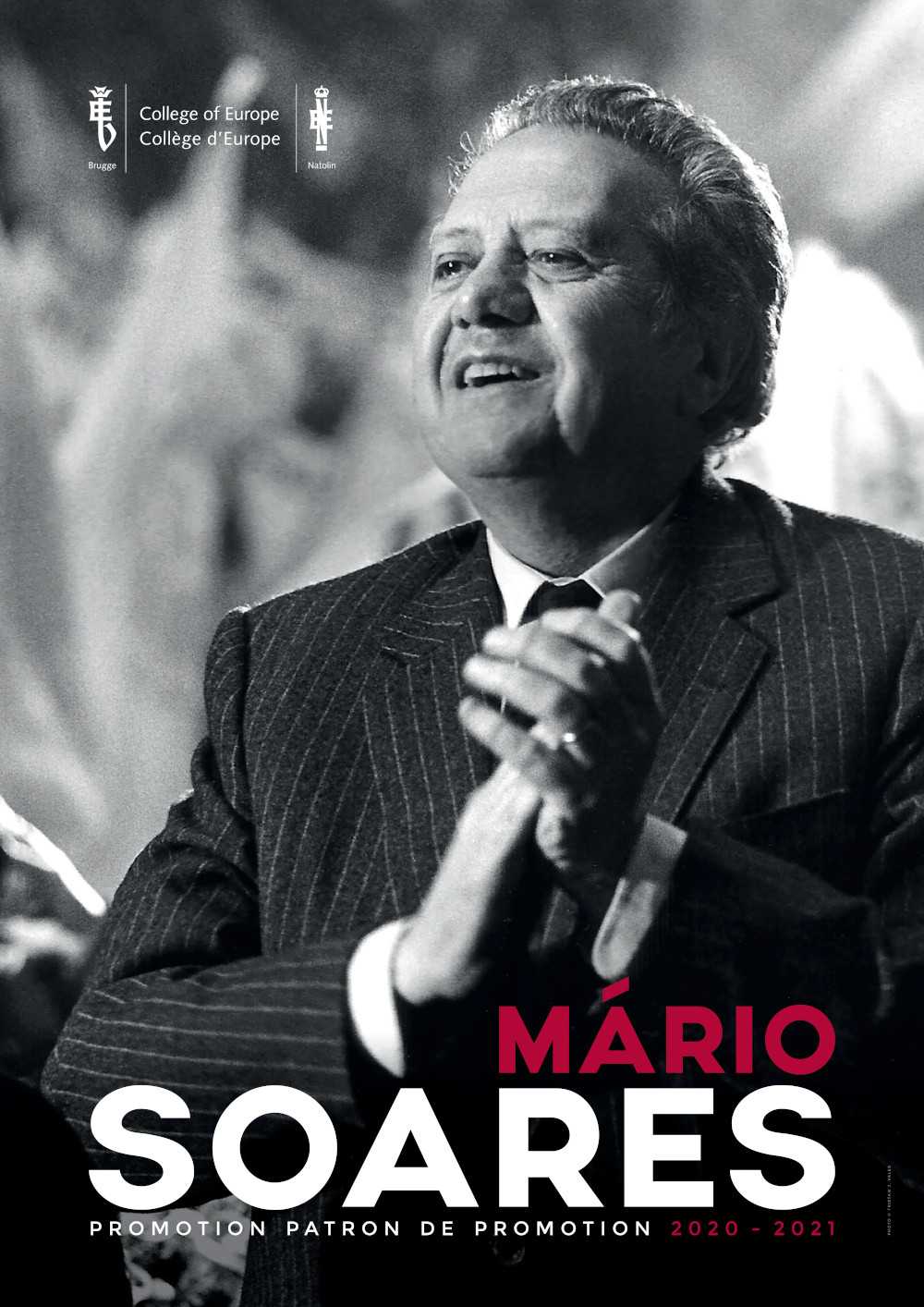Mário Soares was the first political exile to return to Portugal after the
Armed Forces Movement coup that, on April 25th, 1974, toppled the
dictatorship. He arrived in Lisbon on the 28th, travelling on the “freedom
train”, and there was a crowd waiting that greeted and cheered him.
The times that followed led Soares to assert himself more and more as a
European leader, at the same time that he became the Portuguese politician
with greater international recognition. After the rally that took place on
the 1st of May, he was given the task of obtaining international recognition
for the Portuguese revolution, by visiting the main European capitals, where
he met François Mitterrand, Harold Wilson, Olof Palme, Willy Brandt, Joop
Den Uyl, and Trygve Bratteli.
“A hora não é para a realização de uma política partidária mas sim para
uma política da mais ampla unidade das forças democráticas, das forças
do progresso para, unidos, fazermos frente aos gravíssimos problemas que
o país neste momento enfrenta”
Being appointed Minister of Foreign Affairs of the first three Provisional
Governments (1974-1975), he developed a wide-ranging diplomatic action in
order to open Portugal to the outside, establishing relations with countless
countries, and started the decolonization process, for which he had fought
so hard. In September 1974, speaking for the first time before the General
Assembly of the United Nations, he said: “I want to make it very clear that
the free and democratic Portugal we are building, with great difficulties,
but encouraged by the confidence shown by our entire people, now begins to
feel proudly accompanied”.
Establishing deeper commercial and political relations with the Member
States of the European Economic Community (EEC) was a priority. Aware of the
Portuguese economy’s delicate situation, Soares developed a skilful approach
to the EEC, highlighting the country’s position as a link between Europe and
Africa. At the same time, the contacts established were translated into
international support, particularly from European socialists to the
Socialist Party, a young party still being shaped.
In a period during which in Portugal political-military clashes became more
intense, Mário Soares asserted himself as the better-known political face of
the defence put up in favour of a pluralist democracy for the future of the
country. He was the leader of the party that won the first free Portuguese
elections – for the Constituent Assembly, on April 25th, 1975 – leaving no
doubt as to where he stood, namely in the conflicts that pitted him against
the Prime Minister, Vasco Gonçalves, and the leader of the Portuguese
Communist Party (PCP), Álvaro Cunhal. The end of the revolution, on November
25th, 1975, and the institutionalization of democracy brought about the
political and social conditions for Mário Soares and the Socialist Party to
place a future accession to the European Communities as a major objective.
“
Esse Portugal renovado deixou de ser um país hostil e reticente à ONU e
relapso no cumprimento das obrigações que lhe cabem. É hoje um país
desejoso de participar plenamente na vida internacional, acatando as
recomendações das Nações Unidas, e de reentrar com total boa- fé no
concerto das nações, aí marcando a posição a que a sua velha cultura e a
sua história multissecular lhe dão direito.
“O governo português considera que deve poder tornar-se membro do
Conselho da Europa desde que se realizem eleições livre para a
Assembleia Constituinte. Com efeito, não só essas eleições serão o
indício comprovativo fundamental da existência de uma democracia
pluralista (...)"













